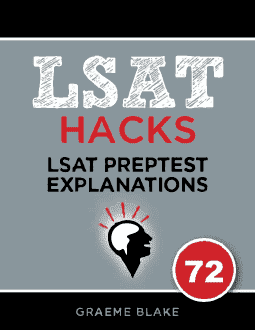This is an explanation for passage 2 of LSAT preptest 72, the June 2014 LSAT. This passage is about Mali’s inability to protect its cultural history, and how UNESCO regulations have been well-intentioned but ineffective. The passage proposes a more flexible approach to fight illegal excavations.
This section has paragraph summaries and an analysis of the passage, links to the explanations for the questions are below.
Paragraph Summaries
- Mali prevented the sale of sculptures from Djenne-jeno, but it couldn’t finance any legal excavations or protect the site. So the sites were looted.
- UNESCO regulations support the idea that cultures own artifacts from their history. (So Mali was right to want to control their artifacts)
- Unfortunately, regulations encourage excavators to avoid documenting the artifacts they take.
- It would have been better if Mali had licensed excavations as long as the artifacts were documented and the excavators paid tax.
Analysis
This passage is an argument. First, it describes a bad situation: artifacts have been looted from Mali. Next, it describes UNESCO regulations that condemn such looting and show that Mali is the rightful owner of the artifacts.
Then the argument takes a twist. It seems the regulations themselves helped ensure the looting erases history, because it gave owners an incentive to hide evidence of looting. The argument recommends regulating and allowing more excavations, in exchange for taxes and information.
I think the argument is actually pretty clear, but that may be my background knowledge in economics. If you found this passage difficult, the Economist magazine has much reading material in this style. (Take their opinions with a grain of salt, but they’ll help get you used to this subject matter).
Put yourself in the shoes of a smuggler. Under the current system, you’re going to hide all evidence that you stole artifacts from Mali. You’re not going to write down any information about the artifacts you dig up. Apart from you and the buyer, no one will know the artifacts exist.
This is bad. Lines 30-34 show that one of the reasons for the UNESCO rules is that we want to learn about the history of artifacts. Ideally, when you excavate an artifact, you should give details about where you found the object, describe other objects nearby, and record your find in some registry with photos and a description.
Current rules don’t stop smuggling and do discourage record-keeping
Right now, there is no incentive for smugglers to record any information. We can say “this is bad, it should stop!”. But while it feels good to condemn smuggling, it won’t stop smuggling. There’s a large demand for artifacts, so unless you stop that, smugglers will steal artifacts.
The fourth paragraph proposes a solution: allow the legal sale of artifacts. But in exchange, the excavators must record information and pay a tax.
At face value, this does seem like a better solution. Almost anything would be! Right now, everything has been looted and we don’t know where it is. The knowledge of this ancient civilization is permanently lost.
Of course, lines 51-54 do point out that professional excavators could record even more information. If Mali had the resources to fund excavation and enforce the law, this would be a better solution. But Mali doesn’t have those resources, which is why the author proposes their solution.
Note that the passage is making an argument about what countries like Mali should do to preserve their artifacts. It’s too late for Mali, the artifacts are gone. However, for simplicity, in the questions I’m going to refer to what “Mali” should do, as it’s far shorter to write and read.


Leave a Reply